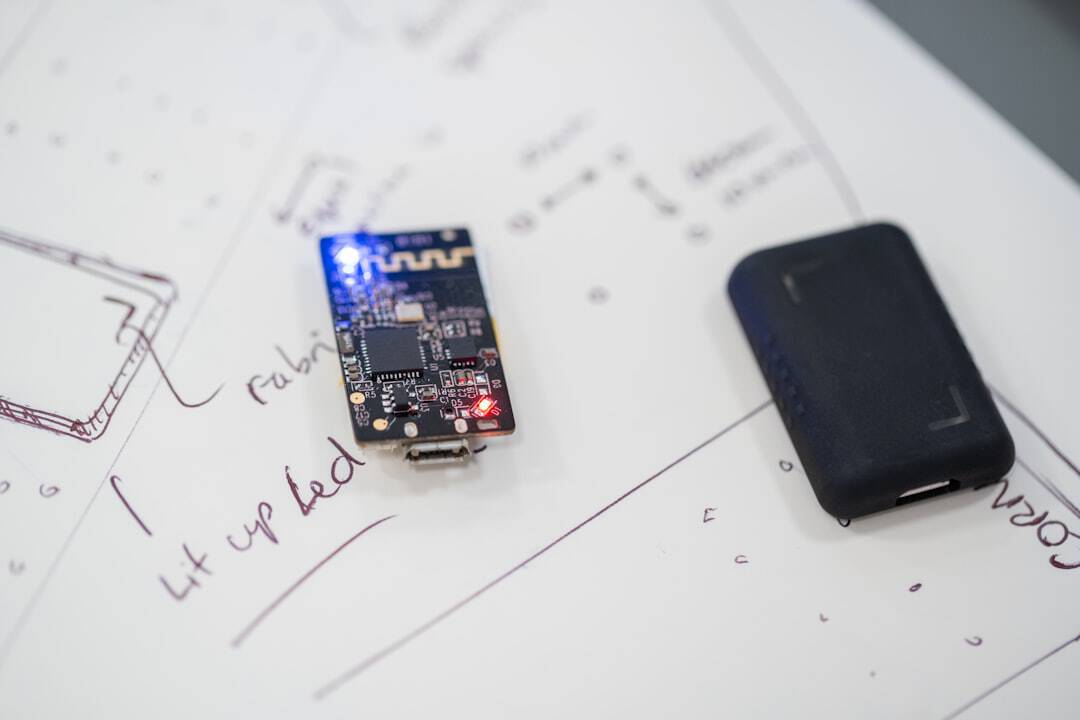The concept of the metaverse has rapidly evolved from a mere speculative idea into a tangible digital realm where users can interact, create, and explore in ways previously unimaginable. As this virtual universe expands, it brings with it a rich tapestry of myths and legends that echo the folklore of our physical world. These narratives, often born from the collective imagination of users, serve as a bridge between reality and fantasy, allowing individuals to engage with stories that resonate on both personal and cultural levels.
The metaverse is not just a technological marvel; it is a new frontier for storytelling, where the boundaries of creativity are pushed to their limits, and where the age-old tradition of myth-making finds new expression. In this digital landscape, the myths that emerge are not merely fanciful tales; they are reflections of our hopes, fears, and aspirations in an increasingly complex world. Just as ancient cultures used folklore to explain natural phenomena or societal norms, modern users craft narratives that address contemporary issues such as identity, community, and the impact of technology on human relationships.
The metaverse becomes a canvas for these stories, allowing for an interactive experience that invites users to participate in the unfolding of legends. As we delve deeper into this virtual folklore, we uncover not only the narratives themselves but also the cultural significance they hold in shaping our understanding of both the digital and physical realms.
Key Takeaways
- Virtual folklore in the metaverse is a fascinating intersection of reality and fantasy, shaping modern culture and society.
- The rise of virtual reality folklore brings traditional myths and legends to life in immersive experiences.
- Digital mythology is evolving in the metaverse, transforming and reimagining VR legends for a new generation.
- The power of virtual folklore lies in its ability to create immersive fantasy adventures and experiences in the metaverse.
- The future of virtual folklore in the metaverse holds endless possibilities for the evolution of myths and legends in digital spaces.
The Rise of Virtual Reality Folklore: How Myths and Legends Come Alive in the Metaverse
Immersive Storytelling
Unlike traditional storytelling methods, which often rely on passive consumption, the metaverse allows individuals to step into the narrative, becoming active participants in the unfolding drama. This interactivity transforms the way we engage with folklore, as users can influence outcomes, explore different perspectives, and even contribute their own stories to the collective mythos.
Cultural Exchange and Diversity
The rise of virtual reality folklore is also marked by the blending of various cultural influences, resulting in a rich mosaic of narratives that reflect the diversity of its users. In this digital space, individuals from different backgrounds can share their own myths and legends, leading to a cross-pollination of ideas that enriches the overall tapestry of virtual folklore.
community Building and Education
This collaborative storytelling fosters a sense of community among users, as they come together to create and celebrate shared narratives that transcend geographical boundaries. As these myths come alive in the metaverse, they not only entertain but also educate, offering insights into different cultures and perspectives that might otherwise remain hidden in our increasingly globalized world.
Uncovering Digital Mythology: The Evolution of VR Legends in the Metaverse

The evolution of VR legends within the metaverse is a fascinating journey that mirrors the development of folklore throughout human history. Just as oral traditions were passed down through generations, digital myths are now shared and adapted across various platforms and communities. This process of evolution is accelerated by the rapid pace of technological advancement, which allows for new forms of storytelling that were previously unimaginable.
As users engage with these legends, they contribute their interpretations and adaptations, ensuring that the narratives remain dynamic and relevant in an ever-changing digital landscape. Moreover, the nature of digital mythology is inherently collaborative. Unlike traditional folklore that often has a singular origin point or author, VR legends are co-created by countless individuals who bring their unique perspectives and experiences to the table.
This collaborative spirit fosters a sense of ownership among users, as they feel personally invested in the stories they help to shape. As these legends evolve, they often incorporate elements from various genres—fantasy, science fiction, horror—creating hybrid narratives that reflect the multifaceted nature of human experience. In this way, digital mythology becomes a living entity, constantly adapting to the needs and desires of its creators and audiences alike.
The Power of Virtual Folklore: How the Metaverse Transforms Traditional Myths and Legends
The metaverse has a transformative power that redefines how we perceive traditional myths and legends. In this digital realm, age-old stories can be reimagined through innovative technologies such as augmented reality (AR) and virtual reality (VR), allowing users to experience these narratives in immersive ways. For instance, a user might don a VR headset to step into a re-creation of an ancient mythological world, interacting with characters and environments that bring the story to life.
This level of engagement not only enhances understanding but also fosters emotional connections to the narratives being explored. Furthermore, virtual folklore has the potential to democratize storytelling by giving voice to marginalized communities whose myths may have been overlooked or misrepresented in mainstream culture. In the metaverse, these communities can reclaim their narratives and share them with a global audience, ensuring that their stories are preserved and celebrated.
This shift not only enriches the tapestry of virtual folklore but also challenges dominant cultural narratives by introducing alternative perspectives that encourage empathy and understanding among users. As traditional myths are transformed within this digital landscape, they become vehicles for social change, fostering dialogue around issues such as identity, representation, and cultural heritage.
Immersive Experiences: Fantasy Metaverse Adventures and the World of Virtual Reality
Immersive experiences within the metaverse offer users an unparalleled opportunity to embark on fantastical adventures that blur the lines between reality and imagination. These experiences often draw upon elements from established myths and legends while allowing for personal interpretation and exploration. Users can traverse enchanted forests inhabited by mythical creatures or engage in epic battles inspired by ancient tales—all within a fully realized 3D environment that stimulates their senses and ignites their creativity.
This level of immersion not only captivates users but also encourages them to engage with the underlying themes and messages embedded within these narratives. Moreover, fantasy adventures in the metaverse often incorporate gamification elements that enhance user engagement. Players may complete quests or challenges inspired by mythological stories, earning rewards or unlocking new content as they progress through their journey.
This interactive approach transforms storytelling into an active pursuit rather than a passive experience, allowing users to forge their own paths within these fantastical realms. As they navigate through challenges and make choices that impact their journey, users develop a deeper connection to the myths being explored—transforming them from mere stories into personal experiences that resonate on multiple levels.
The Influence of Metaverse Myths on Modern Culture and Society

The influence of metaverse myths extends far beyond individual experiences; it permeates modern culture and society in profound ways. As these digital narratives gain traction, they begin to shape popular culture through various mediums such as film, literature, and art. Creators draw inspiration from virtual folklore to craft new stories that resonate with contemporary audiences while reflecting societal values and concerns.
This cross-pollination between digital myths and mainstream culture creates a feedback loop where each influences the other—resulting in a rich dialogue between tradition and innovation. Additionally, metaverse myths serve as a lens through which we can examine pressing social issues such as identity politics, environmental concerns, and technological ethics. By engaging with these narratives, users are prompted to reflect on their own beliefs and values while considering alternative perspectives presented within these stories.
This process fosters critical thinking and encourages dialogue around complex topics that may otherwise be difficult to navigate in our increasingly polarized society. As metaverse myths continue to evolve and proliferate, they hold the potential to inspire social change by challenging existing norms and encouraging empathy among diverse audiences.
Navigating the intersection of reality and fantasy within the metaverse presents both opportunities and challenges for users seeking to engage with virtual folklore. On one hand, this digital realm offers an escape from everyday life—a chance to explore fantastical worlds where anything is possible. Users can embody characters from their favorite myths or create entirely new personas that reflect their aspirations or desires.
This freedom allows for self-exploration and experimentation in ways that may not be feasible in the physical world. However, this blurring of boundaries also raises important questions about identity and authenticity. As users immerse themselves in these virtual experiences, they may grapple with issues related to self-representation and how their online personas align with their real-world identities.
The allure of fantasy can sometimes lead individuals to lose sight of their true selves or become overly invested in their digital lives at the expense of genuine connections in reality. Striking a balance between engaging with virtual folklore while remaining grounded in one’s authentic identity becomes crucial as we navigate this complex landscape.
The Future of Virtual Folklore: What Lies Ahead for Myths and Legends in the Metaverse
Looking ahead, the future of virtual folklore within the metaverse holds immense potential for innovation and creativity. As technology continues to advance—encompassing developments in artificial intelligence (AI), machine learning (ML), and immersive storytelling—new possibilities for myth-making will emerge. We may witness entirely new genres of folklore that blend elements from various cultures while incorporating cutting-edge technologies that enhance user engagement.
The metaverse could become a fertile ground for collaborative storytelling initiatives where diverse voices come together to create rich narratives that reflect our shared human experience. Moreover, as society grapples with pressing global challenges such as climate change or social inequality, virtual folklore may serve as a powerful tool for advocacy and awareness-raising efforts. By weaving these themes into engaging narratives within immersive environments, creators can inspire action among users while fostering empathy towards those affected by these issues.
The metaverse has the potential not only to entertain but also to educate—transforming traditional myths into vehicles for social change that resonate deeply with contemporary audiences. As we stand on the brink of this exciting frontier in storytelling, it is clear that virtual folklore will play an integral role in shaping our understanding of both ourselves and our world for years to come.
If you enjoyed exploring the enchanting blend of folklore and fantasy in virtual reality as discussed in “The Metaverse of Myths: Folklore and Fantasy Come Alive in Virtual Reality,” you might find further interest in how these themes are expanding into various sectors, including entertainment and media. I recommend reading Metaverse and Industries: Entertainment and Media in the Metaverse. This article delves into how the metaverse is revolutionizing the entertainment industry, offering new platforms for storytelling and immersive experiences that could further enhance the integration of mythological and fantastical narratives in digital realms.
FAQs
What is the metaverse?
The metaverse is a collective virtual shared space, created by the convergence of virtually enhanced physical reality and physically persistent virtual reality. It is a space where people can interact with each other and digital objects, and experience a sense of presence.
How does folklore and fantasy come alive in the metaverse?
In the metaverse, folklore and fantasy come alive through immersive experiences, virtual environments, and interactive storytelling. Users can explore mythical worlds, interact with legendary creatures, and participate in reimagined folk tales and fantasy narratives.
What are some examples of folklore and fantasy experiences in the metaverse?
Examples of folklore and fantasy experiences in the metaverse include virtual reality games based on mythical creatures and legends, interactive storytelling experiences set in magical realms, and virtual environments inspired by folklore from different cultures around the world.
How does virtual reality technology enhance the experience of folklore and fantasy in the metaverse?
Virtual reality technology enhances the experience of folklore and fantasy in the metaverse by providing a more immersive and interactive environment. Users can feel like they are truly part of the mythical world, interacting with characters and environments in a way that feels more real and engaging.
What are the potential benefits of exploring folklore and fantasy in the metaverse?
Exploring folklore and fantasy in the metaverse can provide educational and cultural benefits, allowing users to learn about different mythologies and folk tales in an interactive and engaging way. It can also provide a platform for creative expression and storytelling, as well as opportunities for social interaction and community building.











Leave a Reply